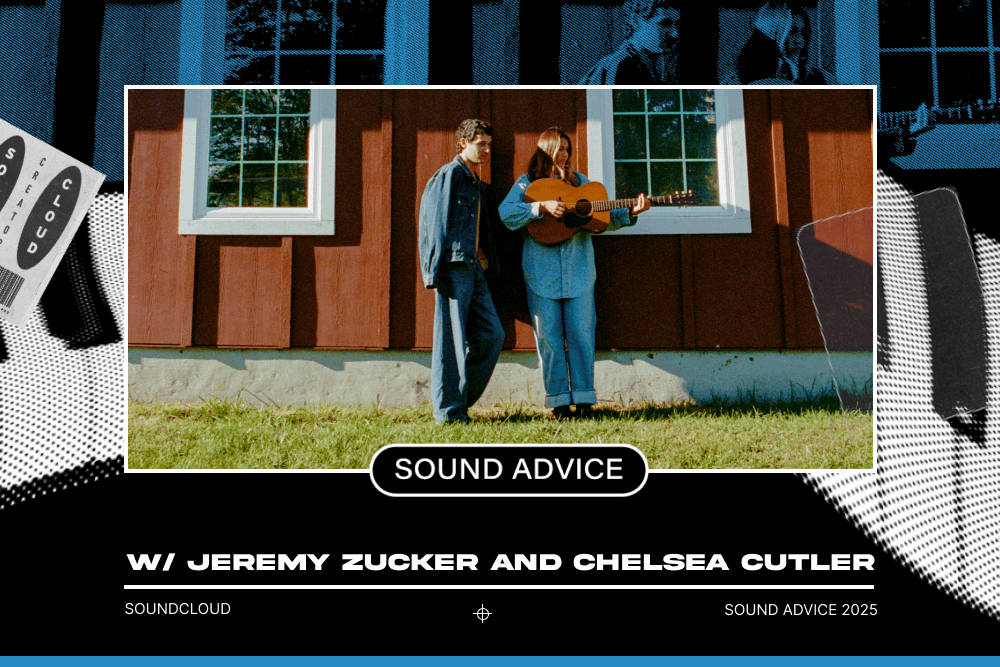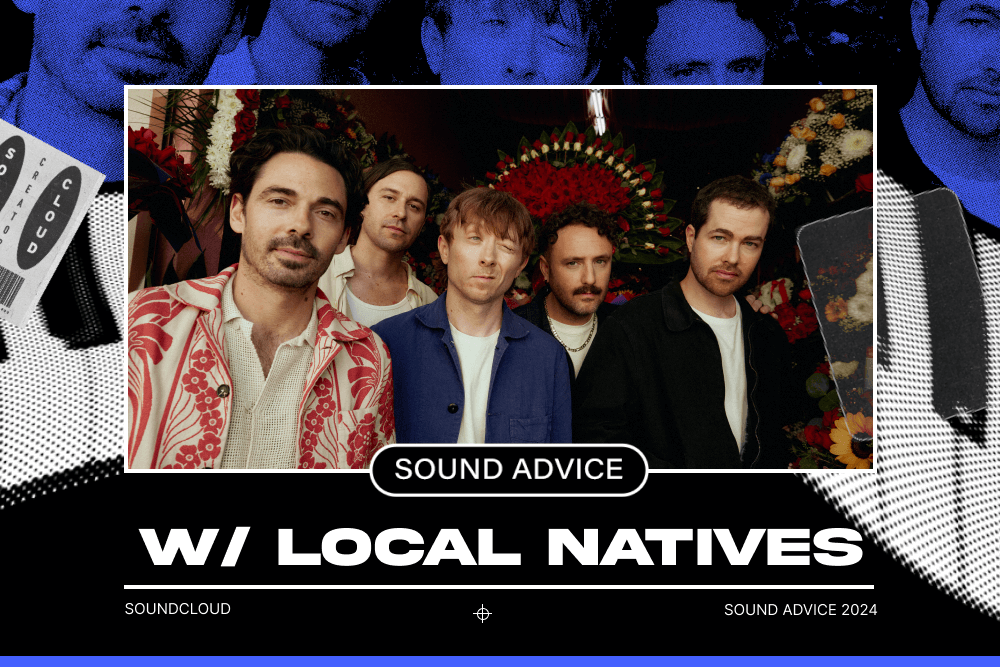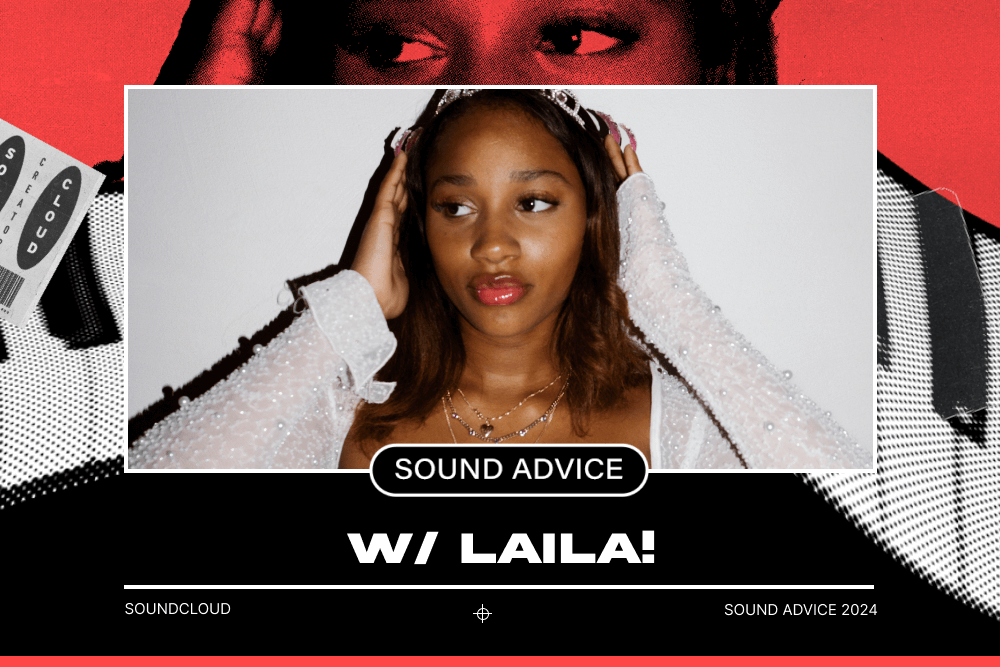Join Joshwa on Sound Advice, the weekly interview series covering artists’ journeys and their creative process. In this episode, we talk to the producer, DJ and label owner about sampling, production, evolving the tech house genre and more.
Welcome to Sound Advice, the series spotlighting artists’ creative process and their SoundCloud journey. We’ll get the inside knowledge straight from the source on how musicians, producers and creatives are leaning into everything SoundCloud offers to elevate their sound, get heard and catapult their careers. Sound Advice is now available in audio format on the SoundCloud Stories profile.
On this episode of Sound Advice, we talk to Joshwa, the UK house producer and DJ who’s the king of flipping classic samples from disco, hip-hop, indie and beyond into big tech house bangers. Joshwa runs his own record label No Bad Fridays and its sub-label No Bad Edits, but he’s also released on a ton of other imprints — including Spinnin’ Deep, Hot Creations and Black Book Records — and collaborated with artists like Solardo, FISHER and Noizu, just to name a few. Joshwa’s musical career is a lot like his outgoing, gregarious personality: he loves all types of music, and refuses to settle down into just one style, niche or label.
We caught up with Joshwa right after he moved to New York City, and found out more about his journey from making beats in elementary school to headlining some of EDM’s biggest stages. He discusses some of the key things that helped him build his career, such as studying labels and music genres, knowing what people want, posting free music and creating community through SoundCloud.
He also gives some great advice on transitioning from bedroom producer to DJ, how to set up demos the right way and his favorite producer plug-ins for getting those big melodies and kicks, and we also get a little sneak peek into his upcoming projects.
LISTEN TO THE AUDIO EPISODE OF SOUND ADVICE FEATURING JOSHWA:
LISTEN TO “SAY MY NAME” BY JOSHWA HERE:
Things We Talked About In This Episode of Sound Advice
How Moving to New York City Brought Joshwa Into a New Phase of Collaboration and Music-Making
- Joshwa joins Sound Advice from his new home in New York City. After playing many times in the US over the last few years, he decided to make the move from London to pursue his career further. We begin the conversation with Joshwa’s hopes for his time stateside: to keep exploring the city, experience live music and club shows, and most importantly, build relationships with local artists, songwriters and vocalists.
- After years of working solo on his laptop and digital software, Joshwa has been expanding his craft into collaborative music-making through in-person studio sessions. As he tells it, by working with others more directly, he’s able to explore more genres, tap into a deeper understanding of creativity and take inspiration from others — and his productions are sounding all the better for it.
- When it comes to his solo music, Joshwa has produced some big club hits in his relatively short time in the dance music scene, and many of them are based around samples of familiar tracks — across pop, hip-hop, disco and more — like “My Humps,” “You’ve Got The Love” and “All of The Lights.” Here, we get deeper into the shift in his creative process; from working solo on sample-based tracks and edits, to collaborating on original music with other artists.
- While Joshwa acknowledges that his edits were a major factor in being able to get heard in the dance music scene, as sample-based tracks always have an element of nostalgia to them for an audience, he’s enjoying the new discipline and push in making more original tracks.
- We get into detail about how Joshwa likes to build his tracks in the studio, how to keep up a good energy with your collaborators, and what kind of mindset you have to maintain to get the best out of everyone in the studio. As a self-taught artist who learned how to produce dance music by watching online tutorials, he explains how being able to learn from people in the same room is illuminating.
How to Use Ableton Plug-Ins and Pick Samples to Elevate Your Dance Productions
- Going back to Joshwa’s early days, we hear about how he started making beats back in elementary school. After a chance encounter with a computer program called Dance DJ while in an IT class, Joshwa was barely 10 years old when he made his first tracks; inspired by the trance music he heard on British dance DJ Pete Tong’s iconic BBC Radio 1 broadcast. Experimenting with a blend of progressive house, trance and EDM, inspired by acts like Swedish House Mafia, Avicii, Afrojack and Laidback Luke, Joshwa felt that he’d locked into a style of music he wanted to make from a very young age.
- Today, Joshwa uses Ableton to produce his tracks, and the software has become a key part of his creative process. Here, Joshwa gives great advice to fellow producers, explaining what he’d do if he was just starting out on Ableton.
- First, he says he’d learn all of the stock plug-ins that came with Ableton first, to give himself a better, foundational understanding of the software, rather than downloading all of the latest plug-ins and risk feeling swamped by choice. For all of the production heads out there: some of Joshwa’s favorite plug-ins are CamelCrusher, Fabfilter Saturn, Decapitator, Diva and Repro.
- When it comes to working across dance music styles, Joshwa has it covered; within his overall tech house framework, he blends disco, techno, garage and more. We get into more detail about the production and conceptual choices that Joshwa makes when he’s laying out a track, and how different musical styles come with different production, sample and mixing choices.
- Joshwa drops some gems on how to achieve an authentic sound through smart sample selection and placements within a track, and how to use Ableton to keep your tracks feeling fresh and original, even if they’re drawing direction inspiration from familiar, older tracks.
- For Joshwa, it’s important to use quality samples, but sometimes those older tracks that feel ripe for sampling don’t always hold up with modern digital production software. Here, he gives more advice on how to work with older, analog tracks to make them work seamlessly in your digital edits.
How to Transition From Bedroom Producer to Touring Artist, and Pitch Your Demos To Labels to Labels and DJs
- Having made the transition from bedroom producer to touring DJ, Joshwa reflects on the tracks that helped elevate his career. His Snoop Dogg-sampling “Party’s Jumping” is a special one for him: after sending it to dance artist Lee Foss, Foss played it on a livestream with John Summit; the track caught Summit and the audience’s attention, which led it to be signed to Foss’s Repopulate Mars label.
- With “My Humps,” Joshwa gained major viral traction, with reactions to the track from artists like Dom Dolla, Solardo, John Summit and Lee Foss; the popularity of the track meant that Joshwa was offered better show bookings and time slots, which pushed him from the UK scene into bigger shows in Europe and North America.
- When it comes to advice for up-and-coming producers, Joshwa gives some sage advice: your music will never feel perfect, so don’t be afraid to pitch out your music when it feels “almost” done; it’s better to have the music out in the world, for feedback, then sit in your files unheard. And when it comes to that feedback, he says, you have to believe in your own sound.
- When Joshwa made his track “My Humps,” one person told him that the sample had been “done a million times before” and that his track wouldn’t work — but Joshwa believed in the track so much that he kept sending it out to DJs for airplay. Now, “My Humps” is one of his career-defining tracks, and has led him to do great things as a touring artist.
- Joshwa runs his own label No Bad Fridays and its sub label No Bad Edits. As someone who runs labels and has released on several other labels, too, he’s well versed in the fine art of pitching demos to others.
- So what’s the best way to get your music heard? According to Joshwa, most importantly, pay attention to the labels you’re pitching to. Know the catalog and the sound of each label, and consider if your music would be a good fit for that label or not.
- If the label owner is also a DJ, listen to what style of music they play out in their sets: will your own music fit well with their setlist? If a DJ plays your track out in a set, they’re more likely to sign it to their label, says Joshwa. And finally, pitch well: pick and send your best three or four tracks, not 20 or 30 tracks.
- Joshwa has a demo submission button on his SoundCloud profile, where artists can pitch music directly to him. He’s found this integral to the development of his own music and of his labels. Joshwa uses SoundCloud every day to privately share tracks with his team and fellow producers for feedback, to organize his upcoming releases and follow artists who pitch him demos.
How To Read The Room As a DJ and Prepare for Sets in Clubs, Festivals and More
- Over the years, Joshwa has developed his DJ skills: able to play to home and international crowds, from small club nights to major festival stages. As he tells it, there have been interesting challenges and lessons along the way: being able to read a crowd, understand the dynamics of a party and know how to pick the right song for the right moment are all key skills.
- “You can be technically brilliant,” Joshwa says, “but if you can’t read the room and select songs accordingly, you’re not going to be successful.” Joshwa also talks about how UK crowds differ from US crowds, which genres work best in different settings, and how he likes to prepare for a DJ set while leaving enough room for improvisation and change.
Advice on Producing Impactful Edits With Popular Track Samples, from Pop to Rap and More
- Joshwa is best known in the dance music scene for his edits. Tracks like “You’ve Got The Love,” which edits Florence + The Machine, have become a signature in his DJ sets. Here, Joshwa gives fellow producers helpful advice on how to make an edit of a popular track while making it feel original to you, how to structure it to make it as impactful as possible in a DJ set, and how to use that edit to give your greater exposure as an artist.
- When it comes to producing, Joshwa says that what works best for him is turning up every day and working hard, even if it’s just trial and error. As a self-taught producer who mined online tutorials for advice, he’s learned over the years that you can have all the advice in the world, but in order to be successful with original music, you have to do it your own way.
- In 2025 and onwards, he’s tapping into that energy; with plans to release a new track every month, to keep up the momentum after his move to New York City. For fans of Joshwa, we can look forward to a new collaboration with UK grime MC Frisco, which Joshwa teases for a 2025 release.
Links and Extras
Follow Joshwa’s journey on SoundCloud.
Check out Joshwa’s record label, No Bad Fridays.
Listen to Joshwa’s latest edit, “Say My Name.”
Hit play on “My Humps,” Joshwa’s collaboration with Lee Foss.
Go back to where it all began with one of Joshwa’s earliest tracks, “Another Dimension.”
Explore some of Joshwa’s wide-ranging influences, including Avicii, Swedish House Mafia, Solardo, Afrojack and John Summit, to name a few.
Listen to the Festival House Bangers playlist on SoundCloud.
Never miss an episode and follow the official Sound Advice playlist on SoundCloud.
Getting The Most Out of SoundCloud
- Learn more about using DMs to connect with fellow artists and potential collaborators.
- Learn more about how to make a custom playlist on SoundCloud.
- Learn more about unlimited uploads, available with an Artist Pro subscription.
- Learn more unlocking access to unlimited distribution, available with Artist Pro.
- Learn more about getting heard with SoundCloud’s updated algorithm, available to Artist and Artist Pro subscribers.
To discover additional features a SoundCloud Artist or Artist Pro subscription offers, visit here. To catch up on past installments of Sound Advice and make sure you don’t miss out on future episodes, visit here.
CREDITS Host: Vivian Host, Executive Producer: Mike Spinella, Producer: KC Orcutt, Audio Engineer: David “DibS” Shackney, Coordinator: Trevor McGee, Editorial Associate: Lauren Martin




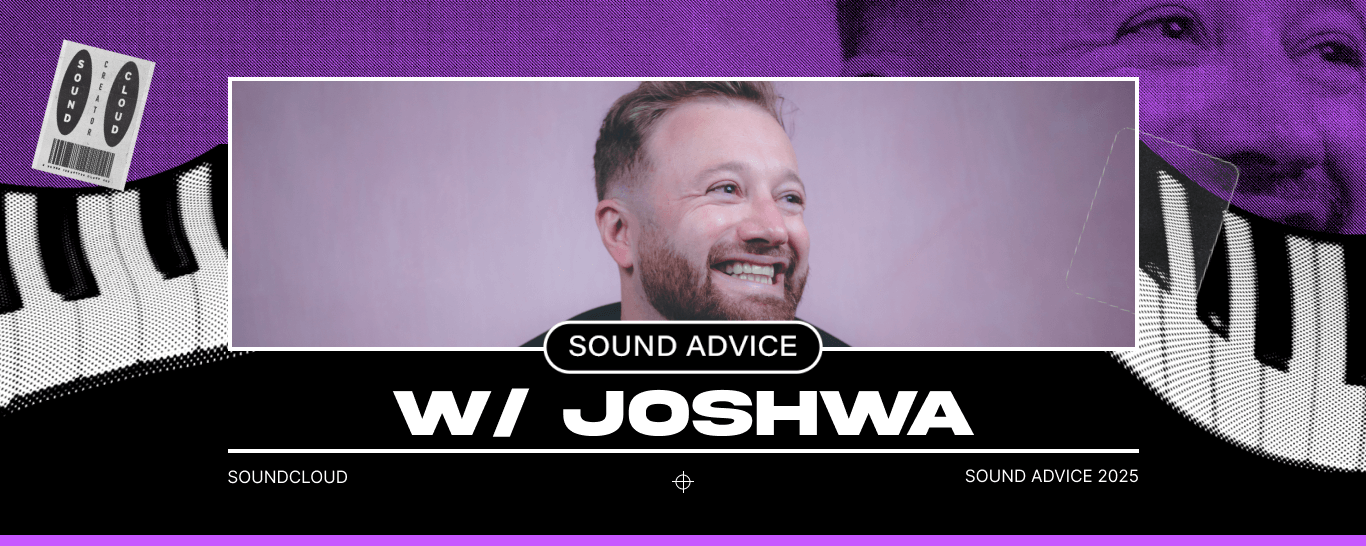





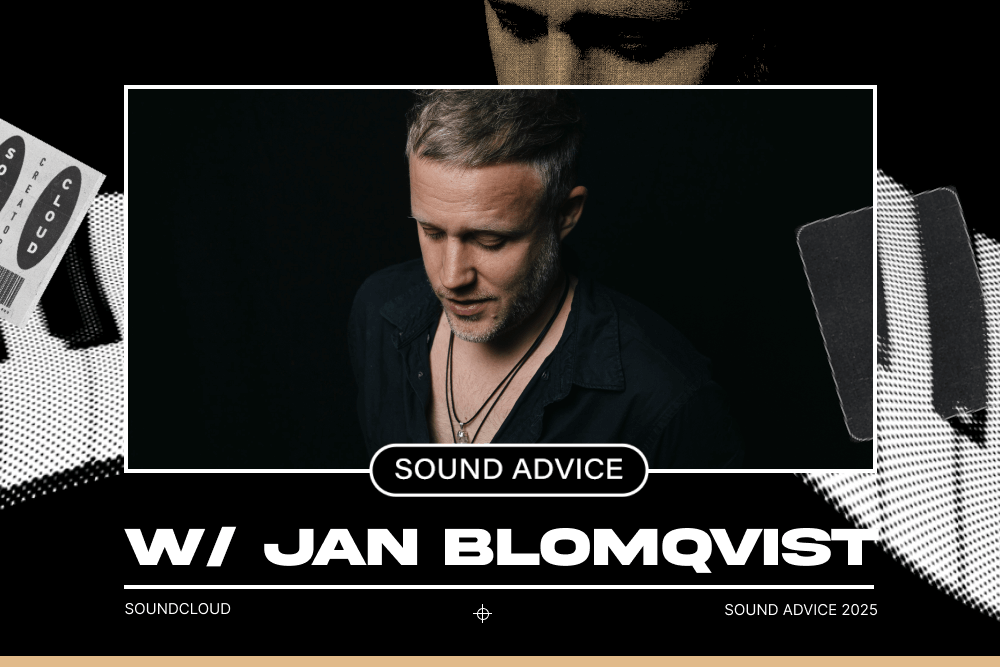
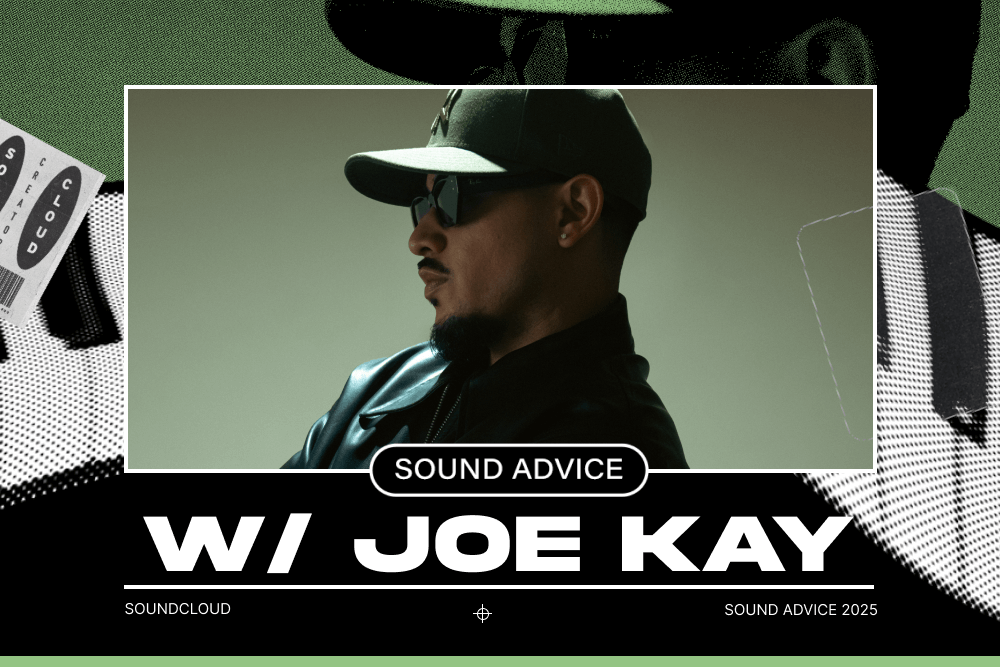


.png)

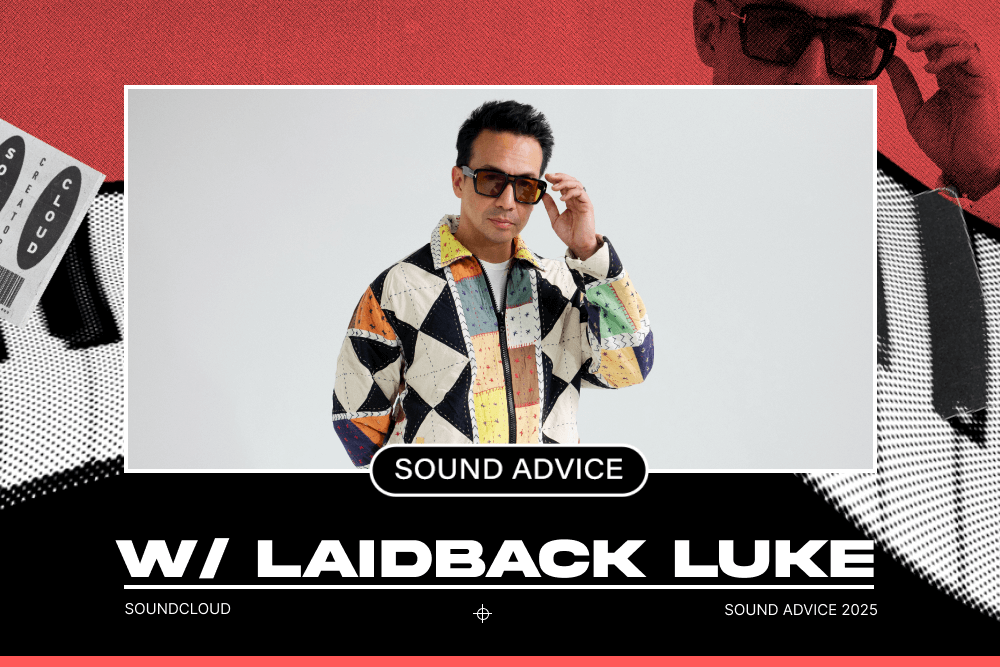

.png)
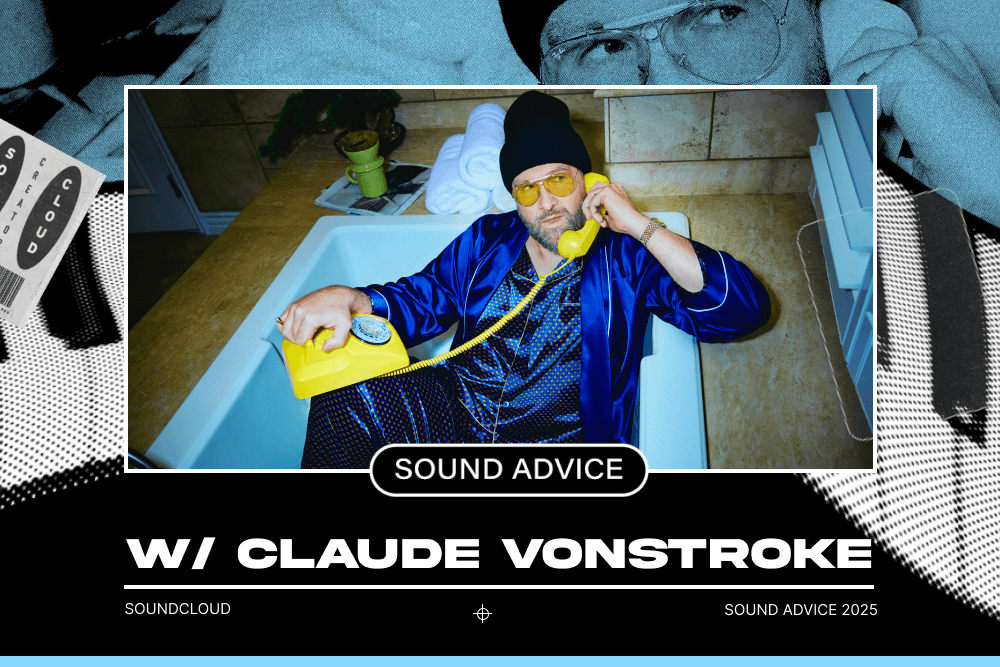
.png)


.png)
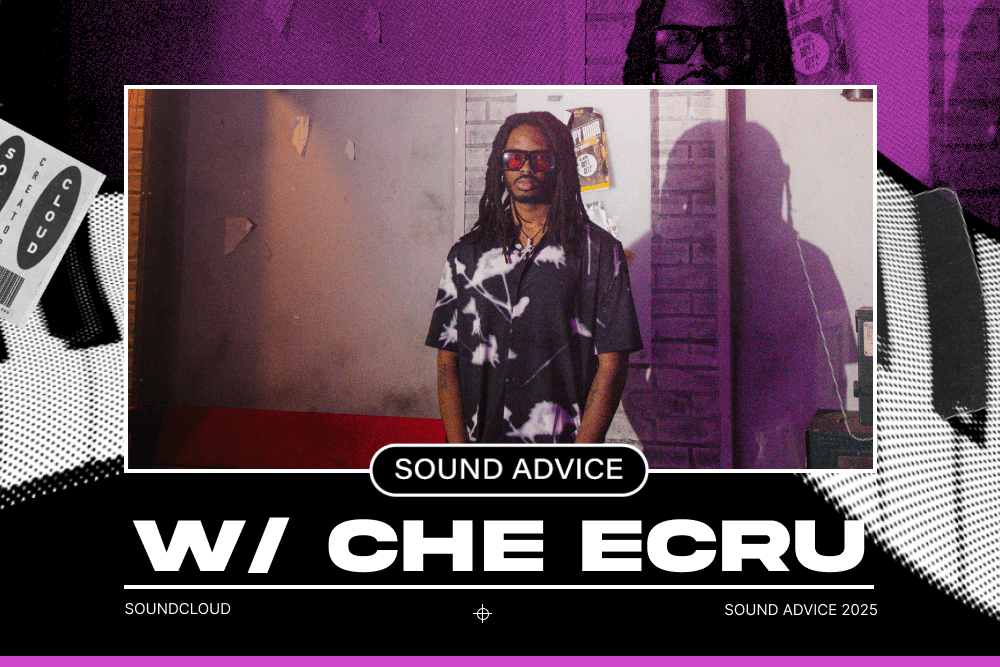
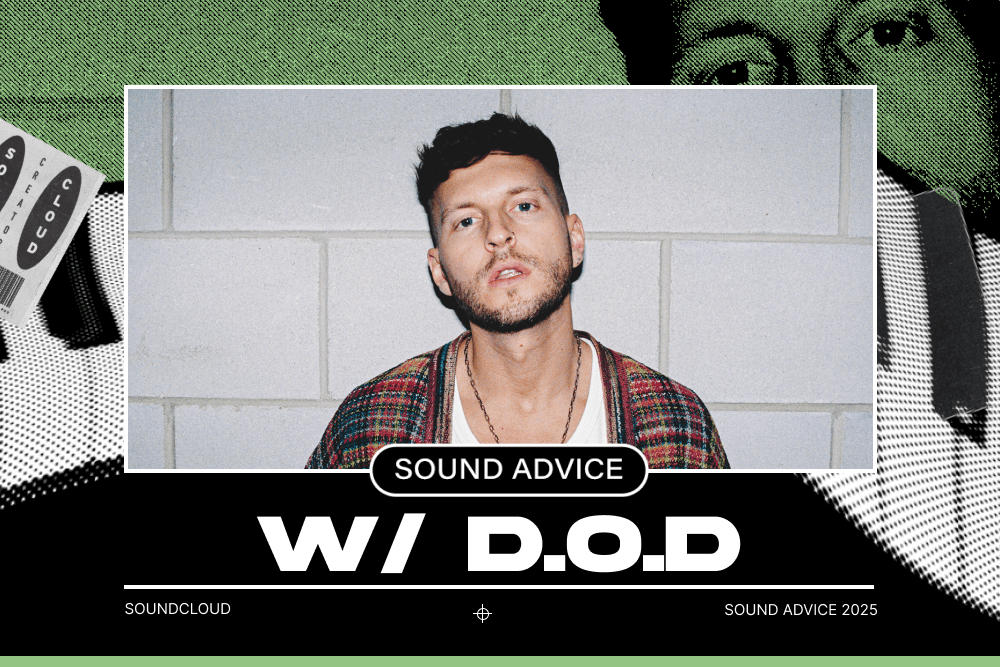
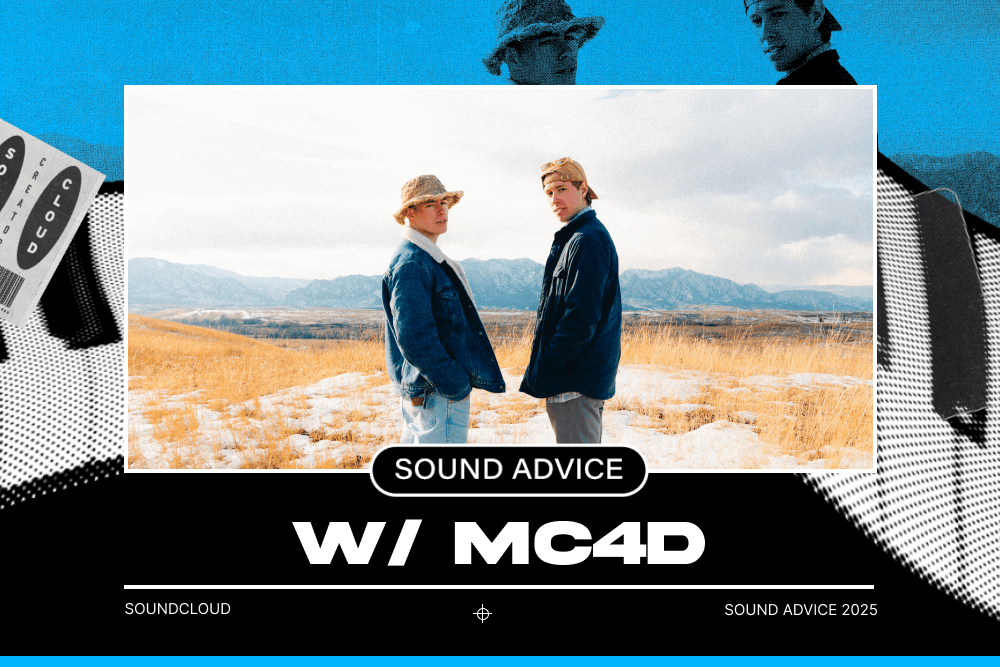
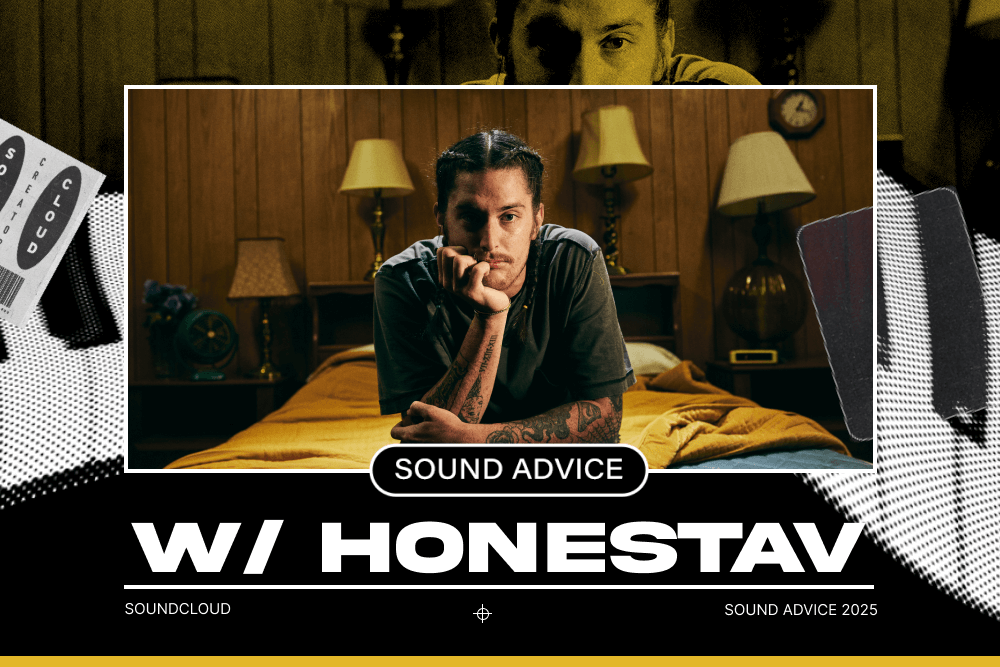
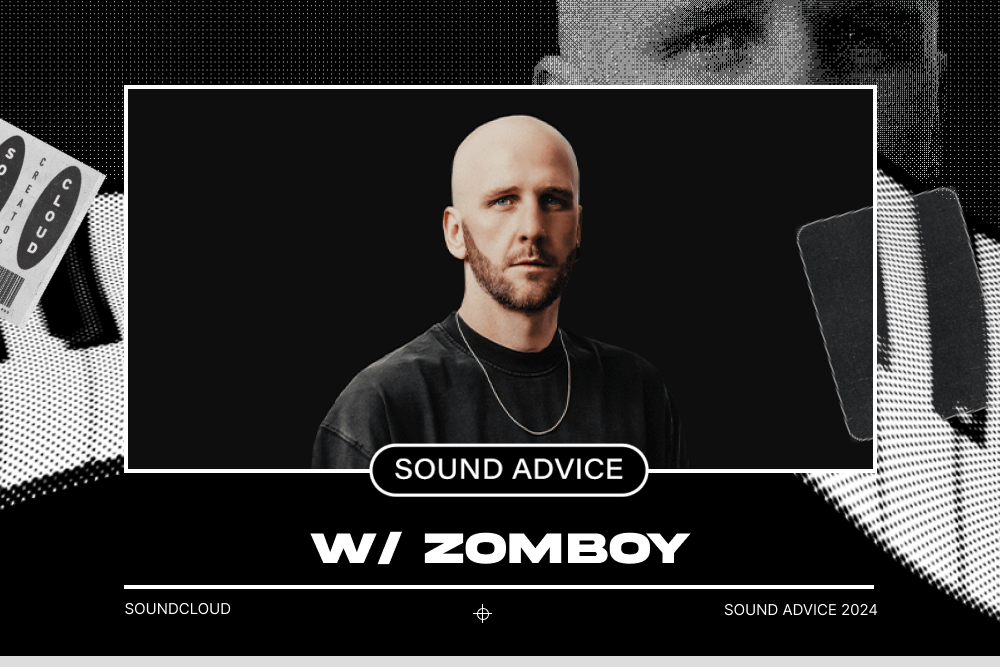
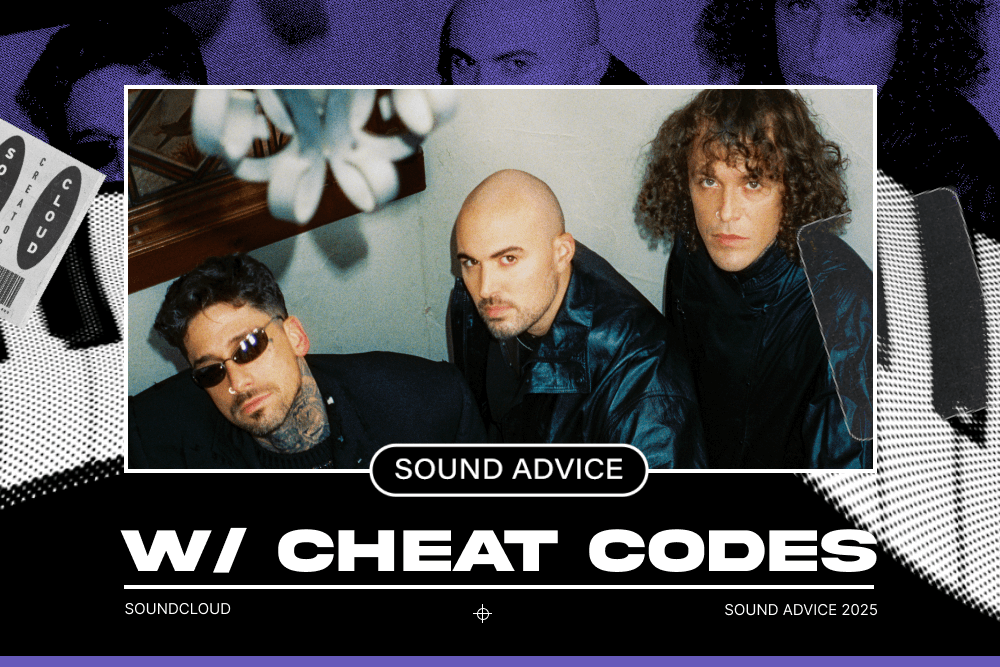

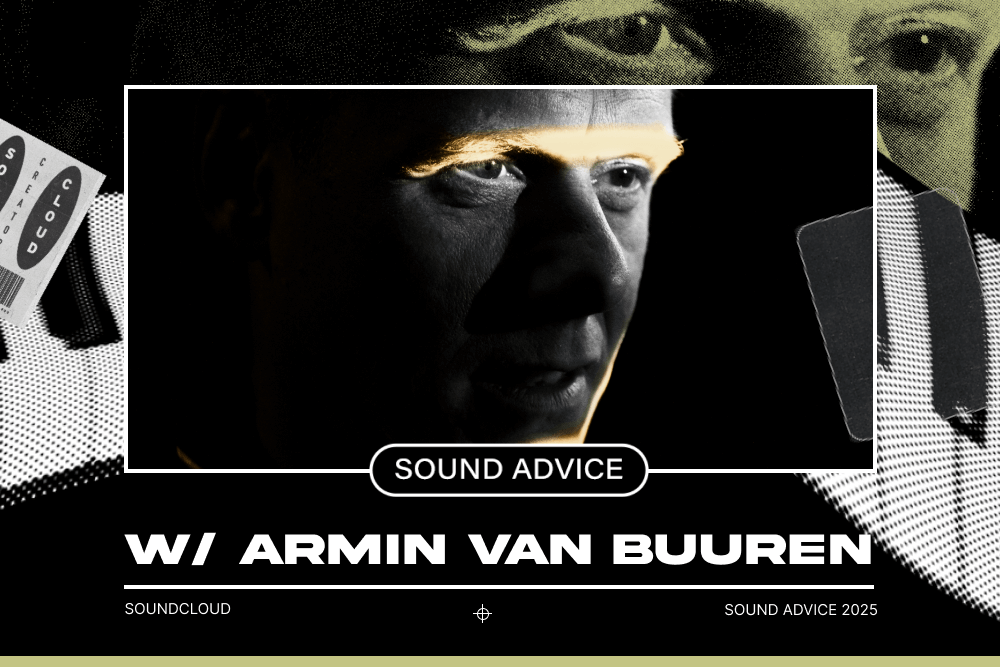
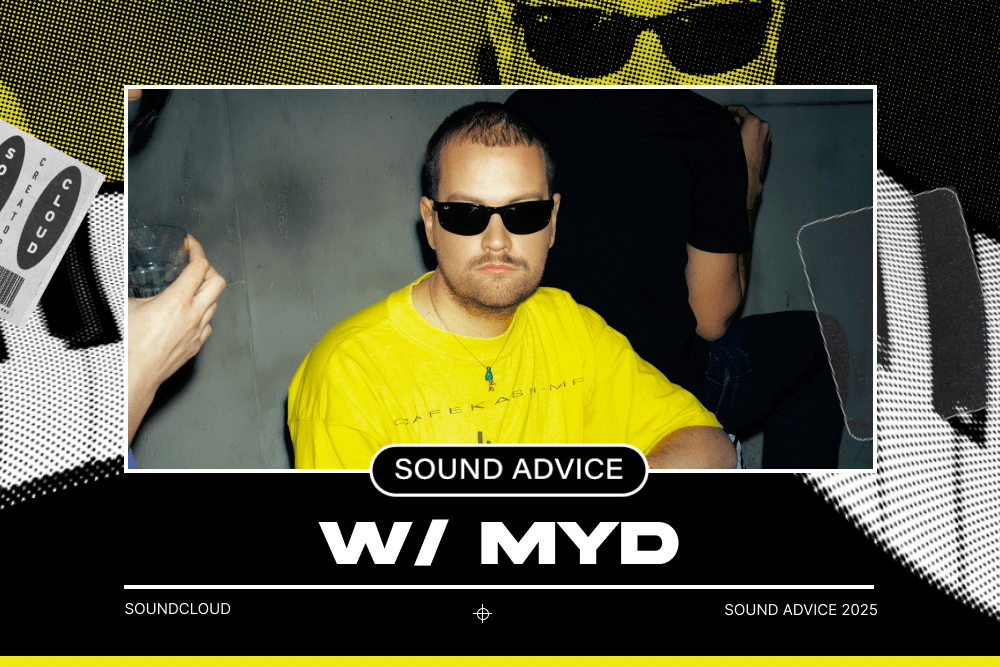


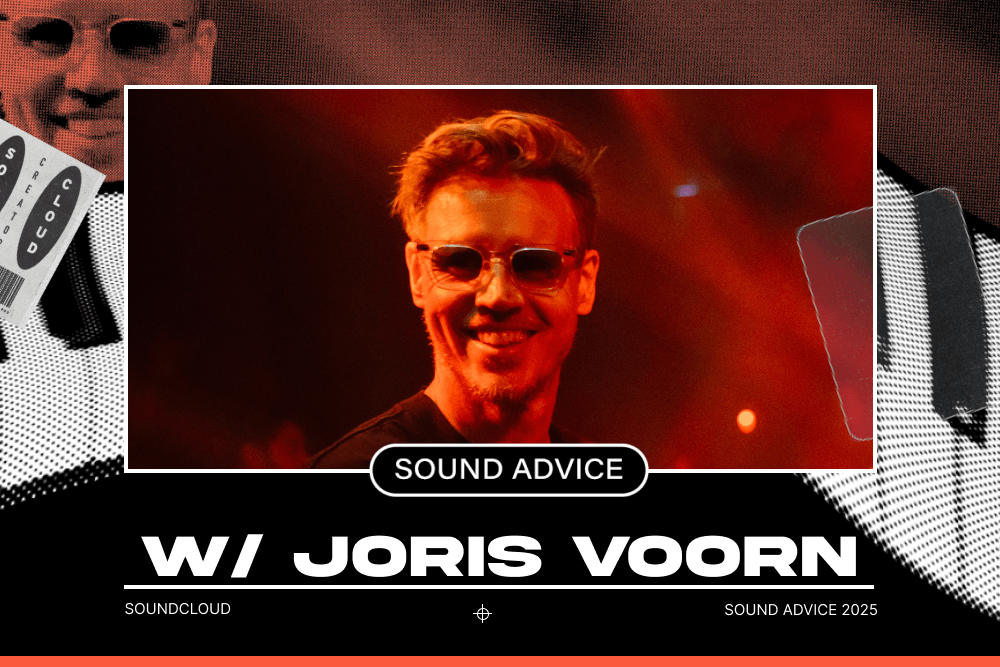

.png)


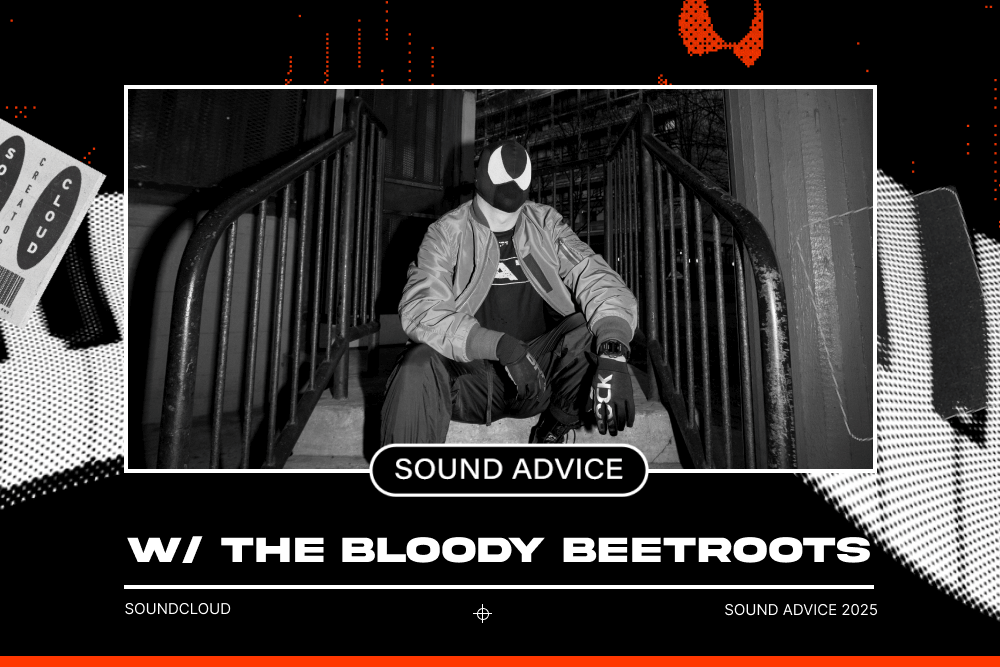


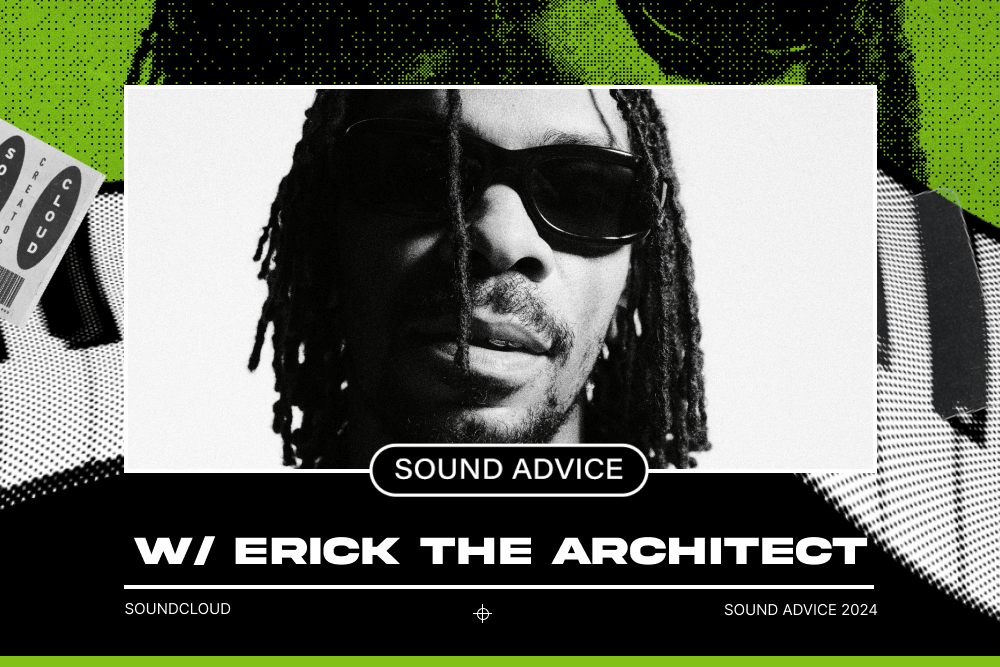




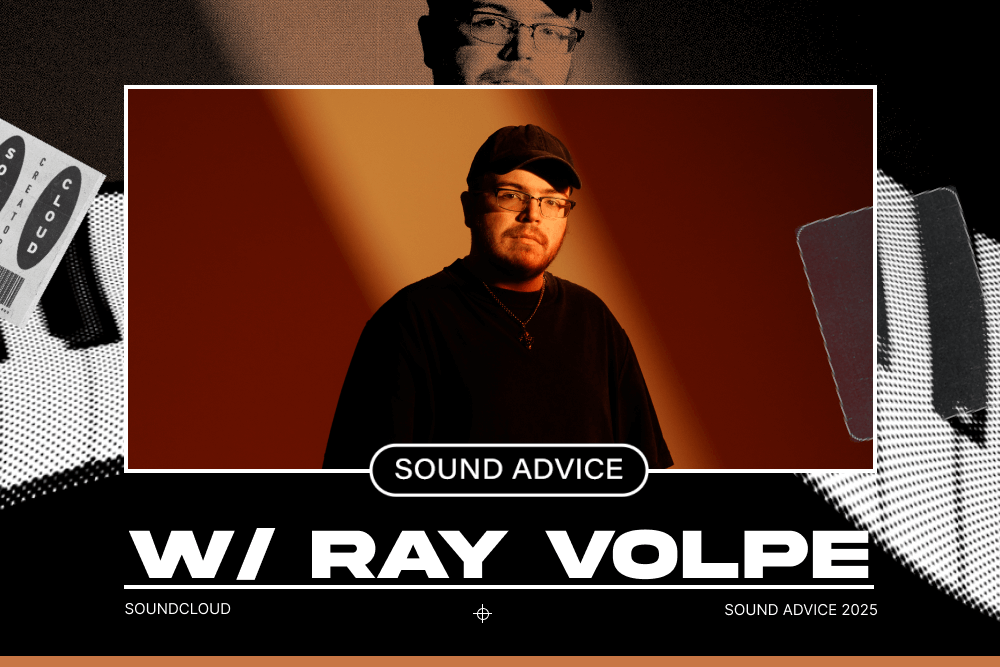

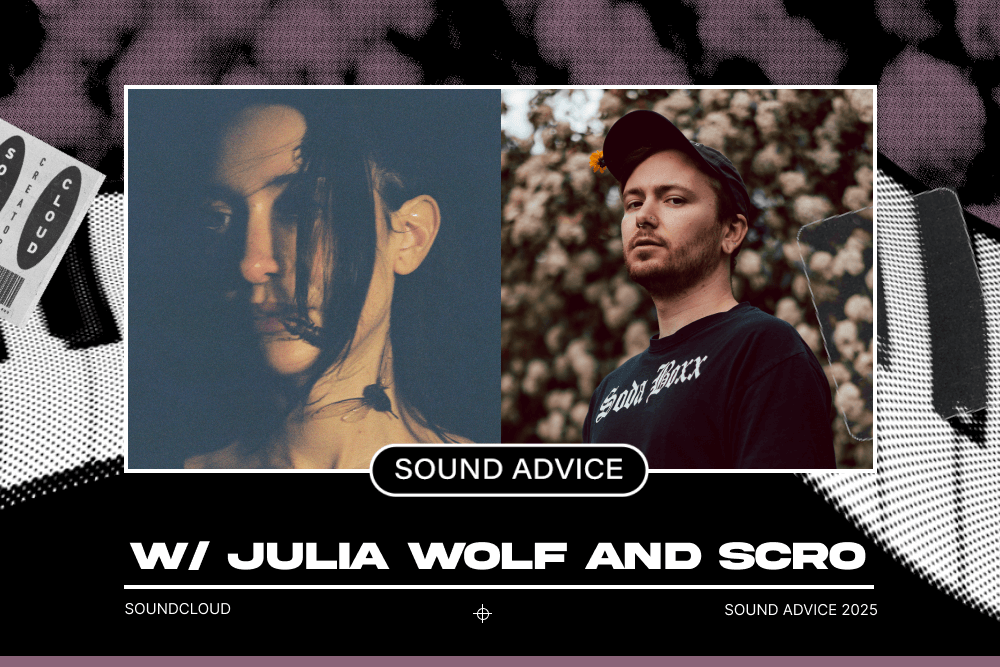




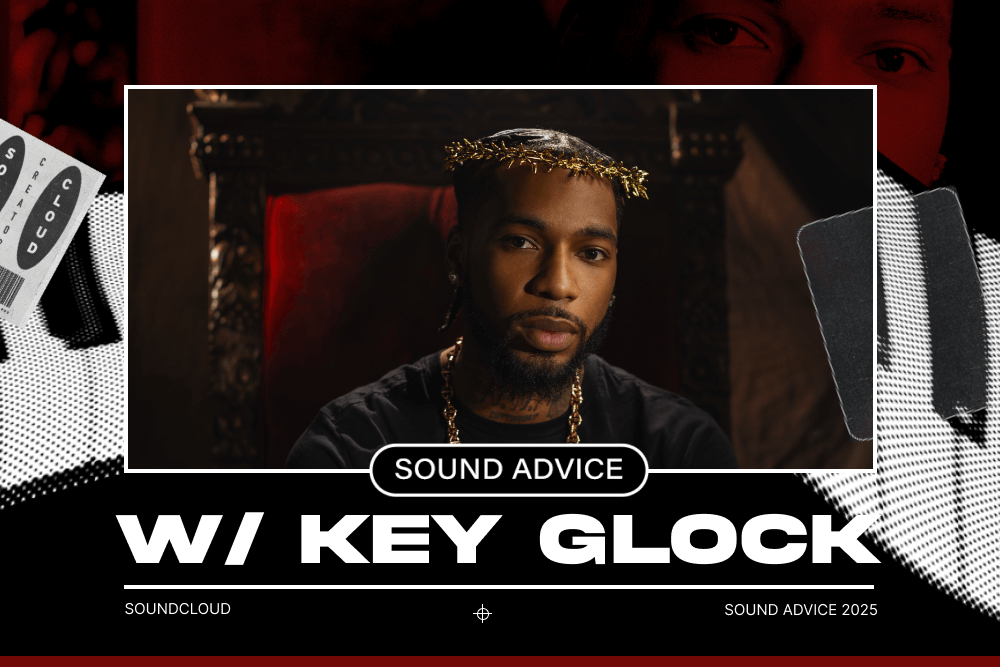




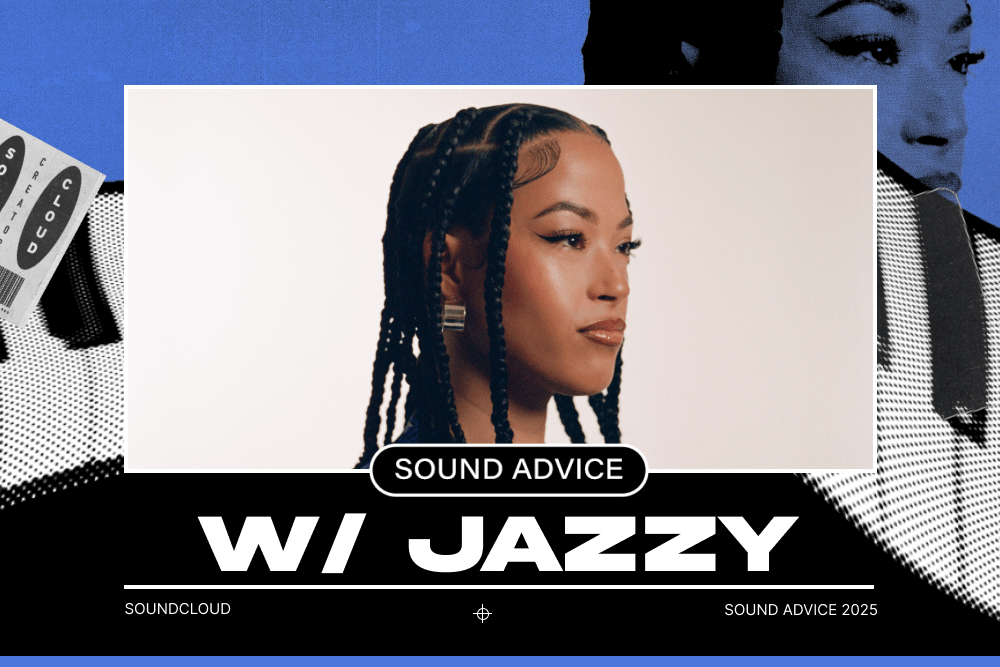


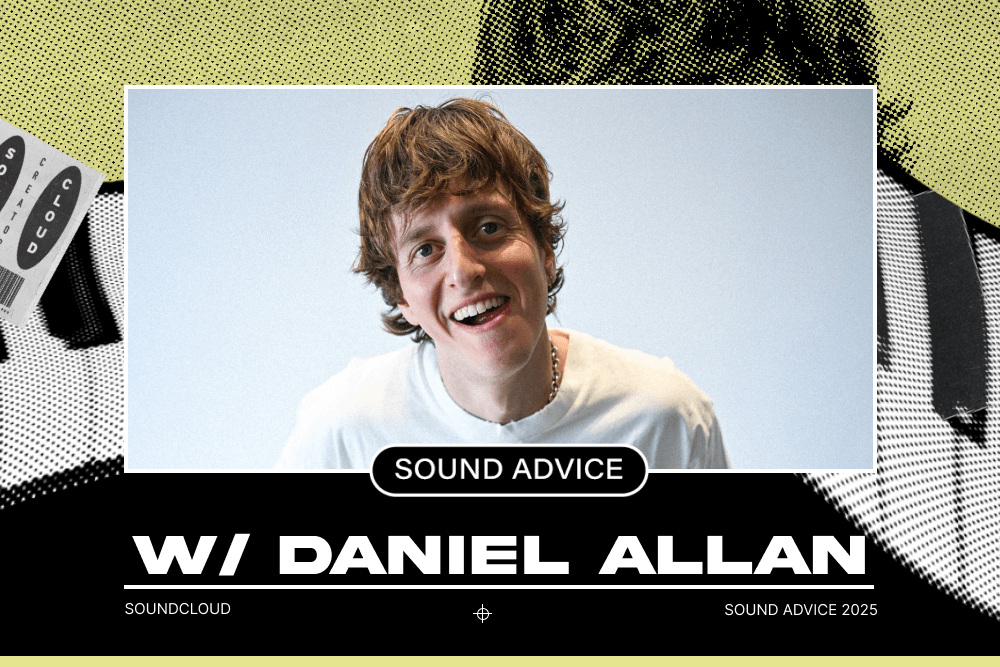








.png)





